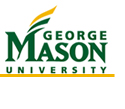


|
D.A. Knowledge Area Education Core Internship Dissertation Doctoral students are expected to contribute to their discipline or profession through independent scholarship. The dissertation provides students with first-hand experience in making such a contribution. The purpose of the proposal and dissertation is to share an original contribution to theory or educational practice. Master of Arts in Interdisciplinary Studies/Master of Arts in Community College Education This innovative program incudes knowledge areas such as English, mathematics, psychology, communication, information technology, and English as a Second Language. (Other areas are being developed.) MAIS Concentration in Higher Education The Higher Education Program has prepared academic leaders in College Teaching since 1987, with over 155 graduates. With the MAIS in Higher Education, university and two-year college employees now have an opportunity for further professional education and development. The courses designed for this concentration prepare individuals for administrative/leadership positions in colleges and universities and in associations and government agencies whose activities impact higher education. Within the Higher Education Concentration, students choose to emphasize administration or student affairs. Potential applicants may be interested in this Concentration if they plan to move from their current career to a career in higher education. They may already hold a master’s degree in a discipline but choose to work in administration or student activities. College and university administrative assistants and para-professionals who want to advance or better understand the dynamics of their positions may also be interested in this new concentration. Current GMU graduate students may select these new courses as electives in their own programs of study. Graduates of these specializations will be prepared for positions as academic advisors, admissions professionals, continuing education coordinators, financial aid administrators, or for positions in career services, minority student services, and similar occupations. The Higher Education Concentration will not qualify a person for a counselor position in the college counseling center nor for administrative positions that require the doctorate. However, in many community and technical colleges throughout the country, a master’s degree will often open up administrative higher level opportunities. Program of Study: Doctoral students who are interested in Education Leadership as their knowledge area may take courses in the Higher Education Concentration towards completion of their program of study. Higher Education Concentration Courses: The following courses will be offered in a sequence that facilitates completing the MAIS degree or the DA/Education Leadership in a timely manner: Students are required to take one research methodology course from a variety of courses offered at GMU. Electives may be chosen from the Public Affairs and International Affairs, Communication, Philosophy, Sociology departments, and other programs within the University. Certificate in Community College Education The Certificate in College Teaching is designed for graduate students who are planning a career in undergraduate education. The certificate offers courses that enhance pedagogical skills, explore pedagogical scholarship and the use of technology in instruction. Students participate in one (teaching) internship.
|
||||||||||||||
|
Web Contact Last Update: September 10, 2010 |
|||||||||||||||